Character
Interview by Richard Marshall.

Christian Miller works at the intersection of philosophy and psychology. Thanks to a $3.9 million grant from the Templeton Religion Trust, he was recently the philosophy director of The Beacon Project, which examined morally exceptional people from the perspectives of philosophy, theology, and psychology. He also directed a five year, $5.6 million project on the existence and nature of character called The Character Project, with funding from the John Templeton Foundation and the Templeton World Charity Foundation. Here he discusses character traits, self images, what makes a virtuous character, why we fail to live up to our self images, character faults, the character gap and how to fill it, links between Aristotle and Confucius, the role of religion in character, why heed philosophy in this area given that there is so much scientific investigation and the harm of too much self knowledge
3:AM: What made you become a philosopher?
Christian MIller: I first got interested in philosophy in high school when I was doing a bunch of reading on my own, mainly in the philosophy of religion. By my senior year, I had run out of classes to take at my high school, so I started going to a local college. There the first class I signed up for was Introduction to Philosophy with Dr. Bible (seriously!), and I loved it. I ended up taking two more courses with him.
When I went off to Princeton, I thought I was going to be a biology major, but my freshman year changed all that. I didn’t enjoy my chemistry and biology courses, and for me personally I didn’t find much satisfaction in the thought of spending the rest of my life working in a lab. In the meantime, I continued to enroll in philosophy courses. By sophomore year, it was clear that philosophy was my true love, and so I declared a major. I have never looked back and have never had any regrets.
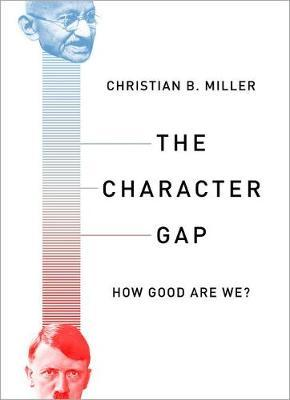
3:AM: You’ve written about character and conclude that we have the wrong idea about our characters. First, then, can you say what you mean by character and why you think it is important?
CM: Sure thing. I think about character in terms of character traits. These are dispositions to think, feel, and act in in certain ways. That’s abstract, I know. But compare someone who is compassionate with someone who is cold-hearted or callous. In situations of need, they could think very different thoughts. They could be moved emotionally in rather different ways. And they could end up doing completely opposite things, say by helping (in the first case) and not helping (in the second).
There are different kinds of character traits: moral, intellectual, and religious are just a few. In my own research, I have focused primarily on the moral traits. The main examples are the moral virtues (honesty, compassion, justice, courage, and the like) and the moral vices (dishonesty, cold-heartedness, injustice, cowardice, and the like).
There are a number of reasons why character is important. Here are a few that come to mind for me:
Prediction: If we know someone’s character well, we can predict what she will do in certain situations (not with certainty of course, but markedly better than chance).
Explanation: If a person acts in line with her character, then knowing something about that character can help us explain why she did what she did.
Assessment: If we know someone’s character well, we can evaluate how good or bad that person is. This might be a global evaluation of how that person is in general, or it might be an evaluation that is specific to some area like keeping promises. Such an evaluation can be very important for everything from hiring a person in your company, to paying someone to teach a class, having someone treat you for an ailment, letting someone watch your kids, trusting someone to manage your finances, counting someone as a friend or a lover, and so on.
Aspiration: If we know someone’s character well, and it is deeply admirable, then her character can serve as a basis for inspiring us to change and grow in virtue ourselves to become more like that person.
There is much more that could be said here, but hopefully this is a good starting point.
3:AM: What does recent psychological studies of our characters tell us about our self images?
CM: There is not a ton of research on this, as far as I am aware, but one interesting place to look is the field of positive psychology. There, following the lead of Christopher Peterson and Martin Seligman in their classic book, Character Strengths and Virtues, researchers have concentrated on what they call “character strengths” (or virtues as philosophers would say). After an extensive process, the list of these strengths was narrowed down to 24, some of which are moral virtues and some of which are non-moral virtues. A survey instrument was also developed, called the VIA-IS, which has 10 items to answer for each strength (so 240 total items).
This survey has now been completed by over a million participants. In a 2007 study, Peterson and his colleagues analyzed VIA-IS data from a sample of 12,439 U.S. participants, where for each item they had to rate themselves on a 5-point scale with 1= very much unlike me and 5 = very much like me. Here are a few of the results:
Honesty: 3.99
Kindness: 3.97
Gratitude: 3.97
Fairness: 4.03
In a far more extensive 2015 study, Robert McGrath looked at VIA-IS data from 634,933 U.S. participants, and found strikingly similar results:
Honesty: 4.03
Kindness: 4.01
Gratitude: 3.99
Fairness: 4.03
McGrath also examined data from 74 additional countries as well, and found “substantial cross-cultural convergence in the self-rating of character strengths…” (43). To take one illustration chosen here at random, these are the results (N = 6,535) for Brazil:
Honesty: 4.00
Kindness: 4.03
Gratitude: 4.01
Fairness: 4.17
Now questions can be raised about the whole “character strengths” framework and about the value of what one can learn from the VIA-IS. Indeed, I have a forthcoming paper in the Journal of Positive Psychology raising a whole host of questions and challenges. But my own personal takeaway from this and other research I have looked at on self-perceptions of character, is that people tend to have a rather positive image of their own moral virtue.
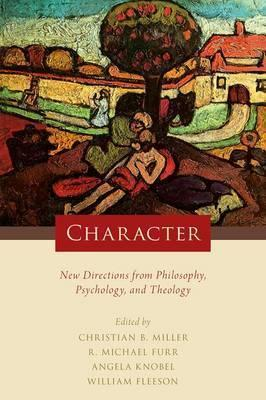
3:AM: What would make a virtuous character?
CM: That’s a big question, and I don’t know if anyone has figured the answer out completely. But let me say a few preliminary things about what I think it would take to have just one of the moral virtues in one’s character. I will use honesty as an example.
First, it seems to be widely accepted that merely performing one morally admirable action is not enough to count as having a virtue. Telling the truth one time at the gym does not make one an honest person, for instance. There has to be some stability to one’s behavior; in the example, the honest person tells the truth repeatedly at the gym when it is warranted.
Second, just acting well in one narrow situation, like the gym, is not enough to count as having a virtue. It needs to give rise to consistent behavior across relevant situations.
Third, the virtuous person’s actions need to be appropriate to those various situations. For instance, bluntly telling someone a bunch of details might be appropriate in some cases (say, in the courtroom), but not others (say, to a stranger in the elevator). Perhaps refraining from saying anything at all might be appropriate in still other situations.
Fourth, motivation matters too. Telling the truth purely to make oneself look good, or to avoid feeling guilty, is not a virtuous kind of motivation, even if the ensuing behavior is of an honest kind.
To sum up, at the very least a virtuous character involves being disposed to perform the relevant actions stably over time and consistently across situations, in a way that is sensitive to the features of those situations, and primarily as a result of virtuous motives.
3:AM: So according to these studies why do we fail to live up to our self image? [I think it would make more sense given what I have just said with question 4, and given what I mainly talk about in chapters 3-7 of the book, to have this question be something along the lines of: “So according to your reading of the psychological studies do people tend to meet these standards for virtuous character?” That is what I focus on in my reply – I hope that’s okay!]
CM: The short answer is no. Thanks to decades of research, we can see how tens of thousands of participants have behaved in various morally relevant situations. Time and again we find patterns of behavior and underlying motivation that are not in line with what I would expect if there were widespread possession of the virtues.
In my 2013 and 2014 books, I review a bunch of these studies. Here let me just mention a few very briefly. In the most famous version of the Milgram studies, the majority of participants shocked to death an innocent test tasker under pressure from authority figures. In the classic bystander studies, when another person in the room did not respond, most participants did nothing themselves to come to the aid of a third party in an emergency (for instance, someone who was screaming after having fallen off a ladder, or a child who was being bullied, or a worker who got a serious electric shock). In the shredder studies of cheating which I talk about below, participants were willing to lie about how many answers they got correct on a test when they knew they could get away with it and could thereby be paid more. And so on.
Plus, even when morally positive behavior was observed, sometimes the motivation behind it was less than admirable. For instance, I like to talk in my work about Robert Baron’s 1997 study of helping in shopping malls. Baron found that few people helped with a simple task after passing clothing stores, but the majority helped after passing Mrs. Field’s Cookies or Cinnabons. According to the leading explanation of this kind of effect, positive smells can put us in a good mood, leading to a motive to maintain that good mood. This in turn can give a motivational boost to helping, if I see the opportunity to help as a means to keeping the good mood going. Admirable behavior, I would say, but not morally admirable motivation.
3:AM: You write about the psychology of various character faults. Perhaps you could give us insight into what the psychology of cheating is so we can see what is going on when we behave against the ethical standards we seem to think we want to uphold?
CM: This is one of my favorite areas of research in all of psychology. In fact, the next book I am writing is on the philosophy and psychology of honesty.
As I understand it, the basic story one sees in a number of recent papers on the psychology of cheating has three main parts:
- Most of us believe that cheating is typically wrong.
- At the same time, if the benefits to ourselves of cheating are thought to outweigh the costs, including the risk of being detected and what might happen if we are found out, then we are often motivated to cheat.
- Yet even given 2), we still want to think of ourselves as honest people.
This framework fits well with results from a certain kind of experiment that has been widely used in the literature on cheating in the past 10 years.
In that experimental design, there is usually a control group where participants take a 20 problem test, turn in their answer sheets to be graded, and get paid a certain amount per correct answer (often 50 cents). The average number of correct answers serves as the baseline figure. In the next experimental condition, a different group of participants takes the same test with the same incentive. But this time they get to grade their answers, shred their documents, and report their number of “correct” answers. In other words, they can cheat as much as they like and get away with it.
In fact, they do cheat. The average number of “correct” answers reported is sometimes double the score of the control group. This provides some evidence for the second component of the story above. Interestingly it also provides a bit of evidence for the third component too, as participants were restrained in their cheating. Out of hundreds of people who have been through this basic setup, almost none of them ever reports that they got the maximum number of answers correct.
The main support for the third component, though, has to do with the results of clever variations to this “shredder condition.” Consider the same test, incentives, and opportunity to cheat. But in one experiment, a group of participants first has to recall as many of the Ten Commandments as they can. In another version the student participants first sign an honor code. In both cases cheating for the most part disappears. And there are still other variations beyond these. The basic upshot is that the Ten Commandments and honor code serve as moral reminders, which in turn make it really hard to cheat and still think of oneself as an honest person.
Incidentally, this psychological picture fits very well with what I said above in response to question five about how most of us fall short of being virtuous. Again, this isn’t how I would expect an honest person to think or act. An honest person would not cheat in the shredder condition, for instance. And she would care less about thinking of herself as an honest person, and more about actually being an honest person.
3:AM: Although we don’t seem to be particularly good, you say we’re not bad either don’t you? Can you explain this?
CM: It might be helpful to say first that I assume there is a spectrum of ways our character can be. On one end of the spectrum is being highly virtuous, then moderately virtuous, then weakly virtuous. On the other end is being highly vicious, moderately vicious, etc.
Now after reading the psychology literature, one view you might hold is the depressing one that most of us are vicious people to some extent or other – cruel, callous, dishonest, and the like. We belong on one end of the spectrum.
But I don’t see a lot of support for drawing that conclusion, just like I don’t see a lot of support for widespread virtue either. For instance, in the cheating literature just mentioned above, cheating was basically eliminated when participants recalled the Ten Commandments or signed the honor code. Yet to a truly dishonest person, neither of those would matter a great deal if at all. Or to take another example, the University of Kansas psychologist C. Daniel Batson has written a marvelous book called Altruism in Humans in which he reviews thirty years of his research on empathy and helping. He has found that empathizing with the suffering of others consistently leads to increased motivation to help, and that this motivation is altruistic (selfless) rather than self-interested. This is morally commendable.
So virtue is on one end, and vice on the other. But I think that the psychological research supports the conclusion that most people have characters which fall somewhere in the middle between these two categories. In other words, our characters are not good enough to count as virtuous but not bad enough to count as vicious. Instead I call this a ‘mixed’ character, with some morally positive and negative dimensions.
3:AM: Given that there’s a gap between being virtuous and what we’re really like, why should we strive to fill the gap? Why not just accept the gap and do nothing?
CM: The title of my latest book (my first for a general audience) is The Character Gap, and there I argue that such a gap exists and that it is worth trying to address it. I also briefly mention some of the reasons for addressing it in a short piece in Slate.
One reason is that a better character seems to be in our self-interest. For instance, although they are only correlational, studies have linked both gratitude and hope to life satisfaction.
In addition, the world would be such a better place if there were more virtue and less mixed character. I know I want to live in a world where there is more generosity and justice, for instance.
Plus, there are religious reasons to care about narrowing the character gap. All the major world religions take developing a good character very seriously, so far as I can tell.
To add one more reason to the mix, good character can also be deeply inspirational. When I read a biography of Paul Farmer or Abraham Lincoln, I not only admire their compassion (Farmer) and honesty (Lincoln), but I also find myself moved to emulate them. This is what the psychologist Jonathan Haidt calls the emotion of ‘elevation,’ and it can provide powerful emotional reasons to strive to fill the gap as well.
3:AM: How should we go about filling the gap?
CM: In chapter eight of The Character Gap, I look at some not very promising strategies for trying to become a better person. In chapter ten I look at some resources offered by religious ways of thinking. Here let me mention two of the strategies I discuss in chapter nine, which is on promising secular approaches.
One has been alluded to earlier, namely to seek out and then emulate positive role models. They can be fictional characters or real persons, someone from the past or the present, a celebrity or a friend around the block. They also needn’t be morally perfect (no one is), nor have all the virtues (few do). Rather they can just be morally admirable in a few areas, and not worthy of admiration in other respects. Empirically, several studies have found that positive role models can inspire better moral behavior, although much more work is needed to see what long-term effects they might have on developing the virtues.
The other strategy I’ll mention here is one I call “getting the word out.” Basically the idea is to raise awareness and educate people about some of the more serious psychological impediments we tend to face to developing a good character. The bystander effect is my favorite illustration. Often we are not aware of the extent to which fear of embarrassment and diffusion of responsibility play a role in influencing our behavior. These are two of the central components in the leading explanation for why members of a group don’t tend to help in an emergency if others are not helping. But if we are made more aware of these psychological impediments to helping, then we can work against them when the needs of others should take greater priority. For instance, in an old study that certainly needs to be replicated, Arthur Beaman and his colleagues staged an emergency with a nonresponsive confederate, and only 27% of the student participants helped. In the experimental condition, another group of students encountered the same emergency, but they had attended a lecture on the bystander effect earlier the same day. Here 67% helped. In a second study where the helping opportunity was two weeks after the lecture, 42.5% helped versus 25% in the control group. These are promising results, but it is striking how little research has been done in this area.
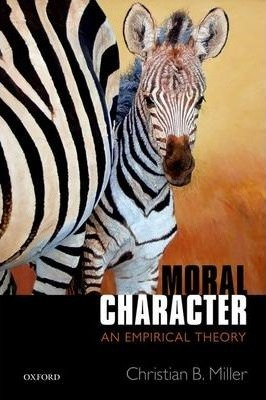
3:AM: Character and virtue ethics is linked with Aristotle but there’s also enormous resonance with Confucian thinking too isn’t there. Can you say something about Confucian ethics and whether it has been influential on your own thinking regarding ethics and character development?
CM: Yes, there certainly is a great deal of resonance. Confucian ethics has always been of great interest to me, but I have not incorporated it very much explicitly in my published work. The reason is that I am very much an amateur and fear that I would make some obvious blunders. So for now I just enjoy reading the scholarship of others working on Confucian ethics and character.
A good example from the secondary literature is an influential paper by Edward Slingerland, which was published in the leading journal in the field of ethics. The paper is entitled, “The Situationist Critique and Early Confucian Virtue Ethics,” and very helpfully connects Confucian ethics with the debates I engage in concerning the empirical makeup of our character.
3:AM: Going back to Aristotle , what have you found important in his thinking for your work on character?
CM: While there is plenty I disagree with in Aristotle’s ethics, such as his claim about the unity of the virtues (roughly, to have one virtue requires having all of them), I do like a number of his ideas. A few examples are his remarks about virtues and vices as stable dispositions, his careful treatment of individual virtues on their own terms, and his stress on the importance of motivation and not just behavior to exhibiting virtue. I especially like his overall taxonomy of virtue, vice, and a middle space between the two (he actually has a number of categories, but I won’t get into that here), and how he thought that most people are neither virtuous nor vicious. While I don’t agree with his positive story about what he called the hoi polloi (‘the Many’), for reasons I explore elsewhere I do find it very interesting that contemporary psychology has vindicated his position to some extent all these years later. Or at least, given my reading of the results of contemporary psychology.
3:AM: And what role, if any, is there for religious thinking in all this?
CM: I think it shouldn’t be a surprise to see religious thinking have a big role to play in all of this. I already mentioned how character is central to Confucianism, and how the same is true in other major world religions as well. In The Character Gap I focus specifically on Christianity due to limitations of space and my own background familiarity, but many of the points I make are not distinctive to that particular religion.
Speaking more generally, different religions have much to say by way of getting clearer on the nature of individual virtues. They also offer empirical claims about the extent to which people tend to have them or not. But most interesting to me are the character improvement strategies they have proposed. They can be wide ranging – there is nothing in other religions like the idea in Christianity of the Holy Spirit working to sanctify believers, for instance – and some strategies are more promising than others. What I find especially intriguing is whether the more promising strategies are detachable from the details of a particular religion and show up in other religions. And furthermore, whether they are detachable from religious commitments altogether and can be used to helpfully supplement secular approaches to character development.
3:AM: Your approach is heavily reliant on psychological studies. This is then an interdisciplinary approach to the philosophy of character and the ethical gap. I guess a skeptic about philosophy might ask why we need philosophers in this arena – why not just leave it to the scientists?
CM: Yes, that is correct about my approach. All my work these days tends to be very interdisciplinary, drawing on empirical results in some way or other. In response to this skeptic, let me mention two points. First, philosophers can be helpful in contributing to the conceptual clarity and precision of discussions of character. Now this can sound condescending and presumptuous, but I don’t mean it to be. Take talk of ‘traits,’ for instance. Psychologists have been talking about them for decades, and their usage is all over the map. Sometimes traits are understood as patterns of actual behavior. Sometimes they are taken to be sets of counterfactual behaviors (how I would behave in situations X, Y, and Z). Sometimes they are described as dispositional psychological properties with causal powers. The point is not that philosophers are needed to try to bring more conceptual clarity to discussions of traits, for instance, but that they can be helpful in doing so.
The stronger point in response to the skeptic is an old, familiar one – that psychologists can’t help us with the normative or ethical, but only with the descriptive or empirical. In other words, while studies of how people behave in morally relevant situations give us useful data, by themselves they cannot tell us whether that behavior is morally good or bad, virtuous or vicious. We need to look elsewhere to arrive at normative standards of how we ought to behave or what it is good to do. This applies as well to what counts as being a good or virtuous person. Psychology by itself can’t tell us what the virtues are or what is required to live a virtuous life.
3:AM: Isn’t it the case that too much self knowledge is destructive to our mental well being. If I keep focusing on the reality of my mediocrity then aren’t I likely to be depressed and suicidal. Self delusion is a way of keeping going and dealing with self- disappointment. Aren’t you in danger in removing this protection? Isn’t there a good reason for just not talking about this stuff too openly, and certainly not do anything about it?
CM: I agree that too much self-knowledge could be damaging. But these concerns seem a bit strong to me. First of all, my view is not that, perhaps unbeknownst to us, we are actually wretched creatures full of a myriad of vices. I could see how coming to believe that might be psychologically damaging. Rather my view is one of mixed character, which emphasizes both the negative and the positive sides. Those positive sides could be eye-opening and encouraging, rather than depressing.
Secondly, it seems to me that the more we become familiar with some of our morally problematic tendencies, the better. Take the bystander effect. As already discussed above, this psychological tendency is robust, and can have terrible consequences. Its potential impact on behavior is often underappreciated. But by being educated about this tendency, we can work to combat it more effectively, as I also mentioned above. This strikes me as all for the better.
Finally, as a teacher, I don’t give all my students an “A” on the first test when they deserve a “C”. I give them the grade they deserve, even if it is mediocre. But I also work with them and help them to improve. Similarly, it would be one thing to find out that our character is mediocre, if we are also stuck with it and cannot do anything to improve. But we can.
3:AM: And for the curious readers here at 3:AM, are there five books you can recommend that will take us further into your philosophical world?
CM: With respect to character, virtue, and morality, I would say:
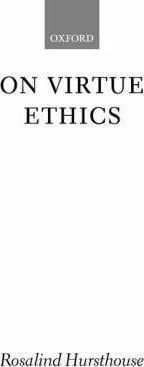
Rosalind Hursthouse’s On Virtue Ethics
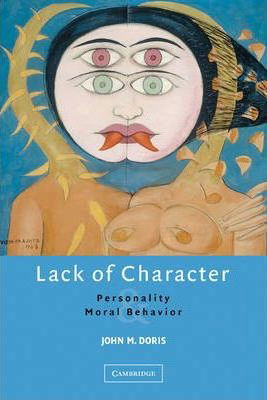
John Doris’s Lack of Character
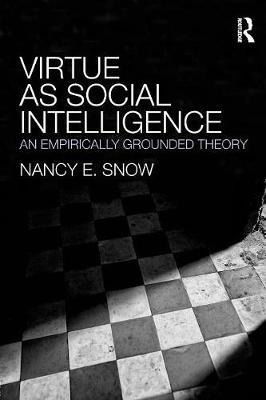
Nancy Snow’s Virtue as Social Intelligence
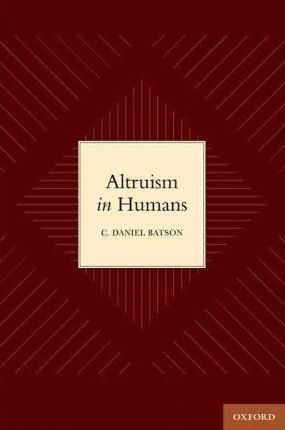
C. Daniel Batson’s, Altruism in Humans
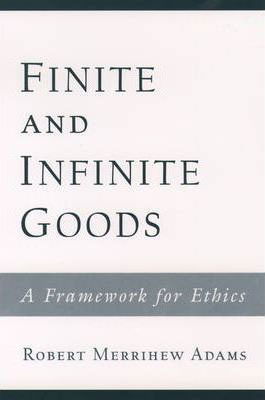
Robert Adams’s Finite and Infinite Goods
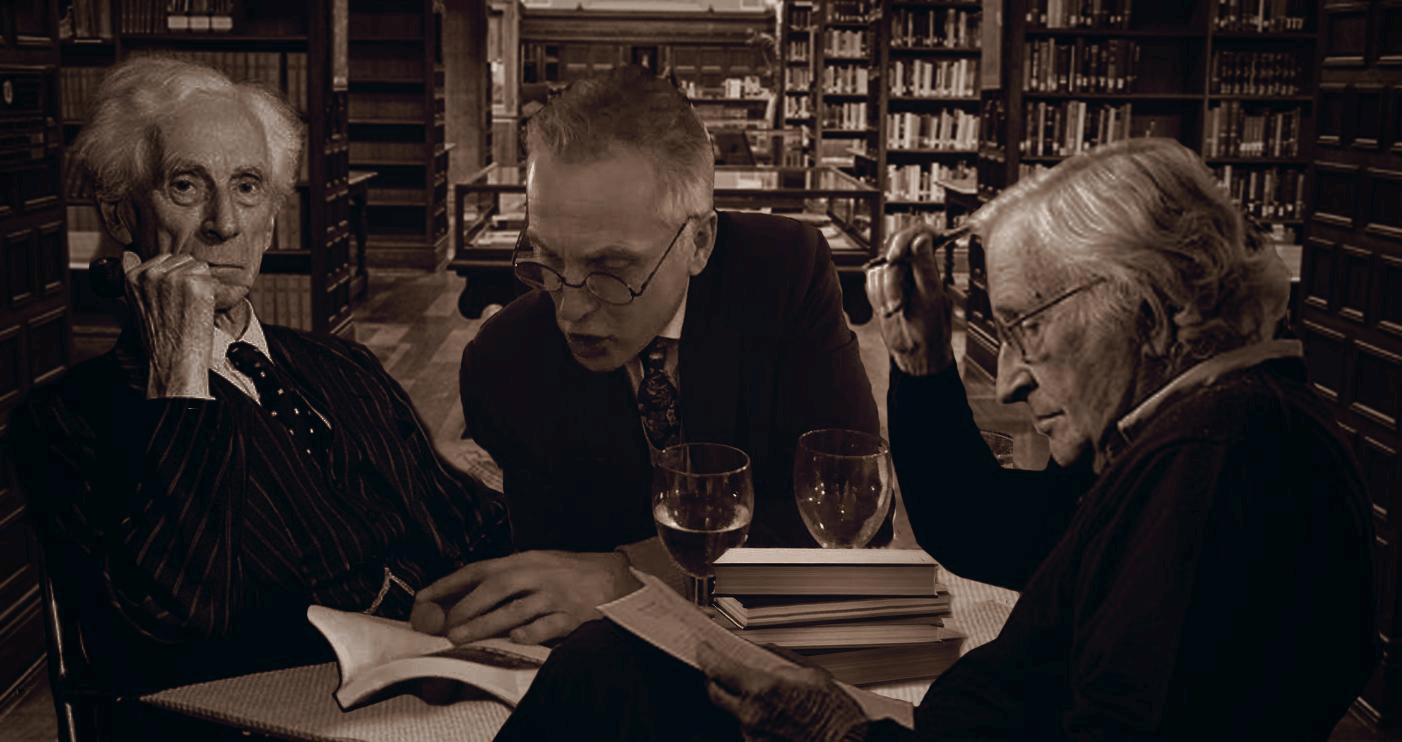
ABOUT THE INTERVIEWER
Richard Marshall is biding his time.
Buy his new book here or his first book here to keep him biding!